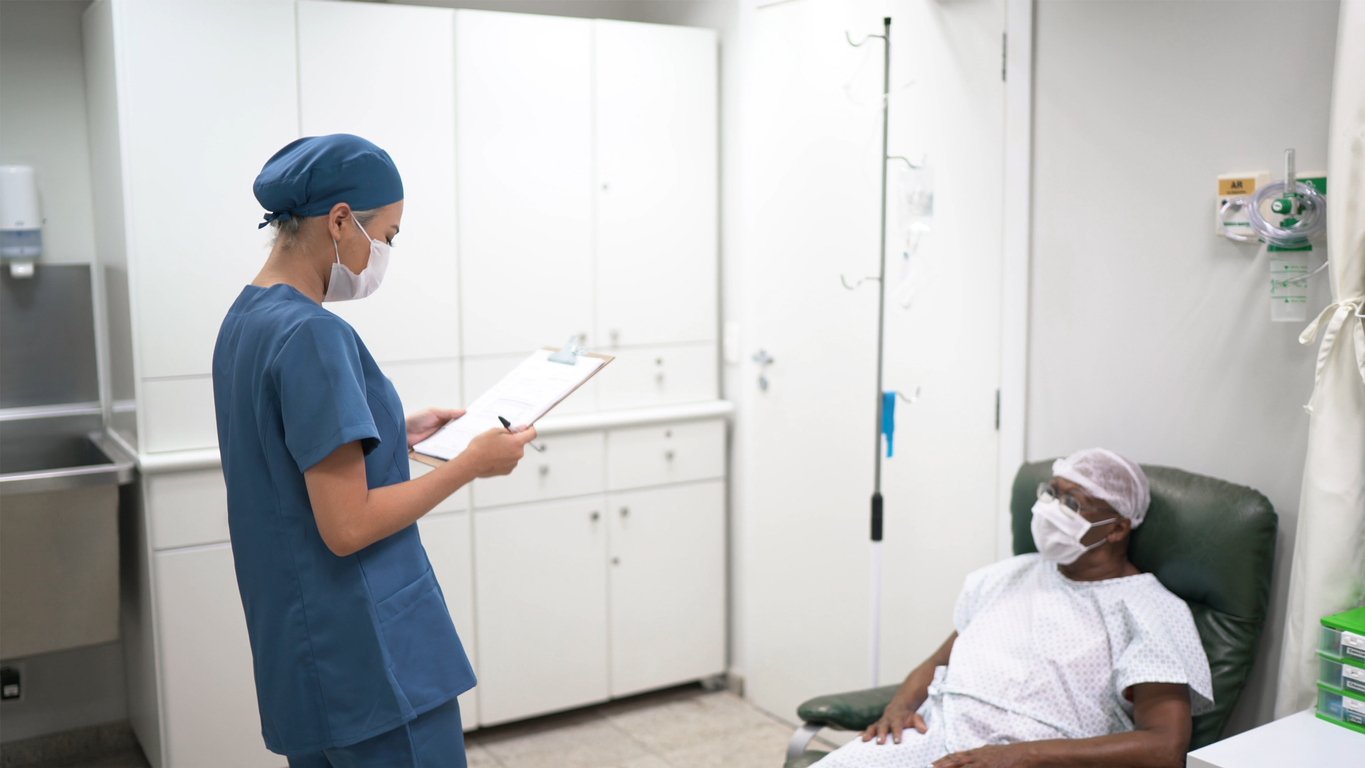The Irish Blood Transfusion Service is entrusted with maintaining the national blood supply and it also provides numerous clinical and diagnostic services to hospitals. Catherine Reilly spoke to CEO Mr Andrew Kelly about the challenges and opportunities facing the service
The Irish Blood Transfusion Service (IBTS) is the statutory body responsible for the national blood supply. It also provides specialist clinical and diagnostic services to hospitals and operates the Irish Unrelated Bone Marrow Registry and the Tissue Bank.
Maintaining stability in the blood supply encompasses a range of responsibilities. These include improving the donor experience, reviewing deferral criteria, monitoring the threat of emerging infectious diseases, and preparing for Brexit.
The IBTS’s CEO Mr Andrew Kelly spoke to the Medical Independent (MI) about the service’s many workstreams and developments on the horizon.
Donation numbers
Only 3 per cent of the eligible Irish population gives blood, and the challenge for the IBTS is to translate a willingness to donate into action, Mr Kelly told MI.
“If you asked most people would they give blood, they’d say yes; they would. So the challenge we have is turning that intention into an action. That is way more difficult than you might expect it to be when people are well disposed in the first instance,” according to Mr Kelly.
The IBTS has not identified a specific target percentage of the population in terms of overall blood donor recruitment. The service requires “constant throughput” of donors to ensure consistent supply. Blood can be donated every 90 days and lasts for 35 days.
In 2017, there were 79,381 blood donors (down from 81,429 in 2016), resulting in 130,566 whole-blood donations. Most donors donated once (54 per cent) or twice (29 per cent) during the year.
“Ideally, you’d want maybe the person who has donated once to donate a second time during the course of the year, and that would be sufficient to ensure consistency of supply,” said Mr Kelly.
“So I suppose if you had another 1 per cent, you’d have ample supply, but that is a big number to ask to actually agree to donate.”
Mr Kelly underlined that while the blood supply fluctuates, “the demand doesn’t”.
The IBTS employs social media and traditional media to highlight the need for blood donation, and promotes campaigns such as ‘Missing Type’ and ‘Every One Counts’ across various platforms. The individual stories of people who have received blood are especially powerful, noted Mr Kelly.
The service targets its recruitment campaigns to periods of the year when people are less likely to donate.
“We would have done a lot of local radio, for instance, in June, because June can be a difficult month with the exams on, households are very busy, people are beginning their holidays, so we target advertising on the months where we think the biggest challenges are, where there is a potential drop in donation but the demand is the same.
“Typically, Easter, June, September and Christmas are the four periods in the year when it is more challenging than usual to give donations.”
The service also now sends a text message to inform donors of the hospital to which their donation has been dispatched. Often, people share these messages on social media and this has positively impacted awareness of donation, according to Mr Kelly.
Streamlining the clinic process has been a particular focus for the IBTS and it has plans to implement an appointments system by late 2020/early 2021.
To support this change, the IBTS’s computer system needs to be upgraded, while donors will also be surveyed on the issue. Mr Kelly suggested that in more rural areas, a mixture of appointments and walk-ins may be the best fit.
Currently, appointments can be facilitated in the IBTS clinics in D’Olier Street and Stillorgan, Dublin, and St Finbarr’s in Cork. Mr Kelly said an appointments system would help retain more donors and encourage donors to return sooner.
Deferrals
There are numerous reasons why potential blood donors may be deferred from donating for a specific time period or indefinitely. One of the most controversial IBTS policies is the permanent ban on blood donation by people who resided for 12 months or more in Northern Ireland, England, Scotland, Wales, the Channel Islands and the Isle of Man between 1980 and 1996 (the 12-month period is accumulated and includes brief trips and weekend visits).
This policy was introduced in 2004 following the first confirmed case of transmission of variant Creutzfeldt-Jakob disease (vCJD) through blood transfusion in the UK.
The IBTS says it keeps deferral criteria under ongoing review. However, there is currently a special focus on reviewing the permanent deferral relating to vCJD.
“We are now looking at vCJD, and the board hasn’t finally come to its decision yet, and we will over the next few months make that final decision and then announce it in due course,” commented Mr Kelly. “That is an issue that is always in people’s minds — when we change anything around deferral criteria, those who lived in the UK for one year or more between 1980 and 1996 are always on social media saying, ‘you won’t take my blood, why not?’”
Asked if there would be a relaxation in the policy, Mr Kelly preferred not to “pre-empt” what the decision may be. “Hopefully in the next few months we’d make an announcement on it and if the evidence supports a change, we will change it, we just need to evaluate the evidence here and in the UK… and we can make a decision.”
In January 2017, the IBTS ended its lifetime deferral policy in respect of blood donations from men who have sex with men (MSM). Under the revised policy, which the IBTS says is based on international experience, MSM can donate if their last sexual contact with a man was over 12 months’ previously. However, Mr Kelly acknowledged that there remains disquiet within the Irish gay community about the issue.
The introduction in England, Wales and Scotland of a three-month deferral period for MSM in 2017 has intensified criticism of the IBTS’s policy.
“I think there is [disquiet]. I think the MSM community would prefer if there were no deferral criteria [in this regard],” said Mr Kelly.
Recently, a gay man took judicial review proceedings against the IBTS on the 12-month deferral, arguing a breach of rights and that individual risk assessment should be in place.
Mr Kelly predicted that the next six-to-12 months will see increased lobbying by the Irish MSM community. He said the IBTS is not actively reviewing the matter at present, although it will be re-examined “when evidence internationally says it is time to review it and time to change it”.
“There are still a number of countries that have a life-long ban in Europe, but they are now in a minority for sure,” he added.
A deferral criteria that will change relates to malaria. Presently, potential blood donors must wait 12 months from the day they leave a country/area affected by malaria. However, malaria has spread to some European countries such as Greece, which has been experiencing locally-acquired cases in recent years.
To alleviate the impact on the blood supply, the IBTS will introduce testing for malaria by the end of 2019. Therefore, if a donor returns from an area where malaria is present, he/she will be tested for malaria after a minimum of four months following return from their travels, instead of being deferred for 12 months.
O-negative overuse
A new national clinical programme in transfusion medicine is in its early stages. Funded by the IBTS and HSE, it is led by IBTS Consultant Haematologist Dr Joan Power and aims to standardise transfusion practice nationally.
Transfusion practice in Ireland is generally “very good”, with some room for improvement, indicated Mr Kelly.
One issue that has especially exercised the IBTS is overuse of O-negative blood. In February, a meeting of the IBTS’s board heard that 18 per cent of all blood issued in the previous week was O-negative. According to Mr Kelly, 8 per cent of the population is O negative and the average use is around 15 per cent, “so that is not sustainable”.
As the ‘universal’ blood group, O-negative may be used when a patient’s blood type is not known, ie, in emergencies. O-negative blood is also frequently used for transfusions required for treating sickle cell disease patients (who are of African parentage), due to the low proportion of donors who share the blood groups of these patients.
As Mr Kelly noted, Ireland does not have a large black community, although the IBTS is engaging with the community to encourage more donations.
“We want obviously to ensure O-negative is optimally used, so we don’t over bleed our O-negative donors. And I have been in correspondence with the Academy of Clinical Science [and Laboratory Medicine] on the issue, and we all agree we need to optimally use it and we need to try and see — are there areas in the health system where at the moment that is not done?” explained Mr Kelly.
“We also want to make sure that hospitals order appropriately, in terms of the groups of blood, rather than O-negative ‘just in case’. So we are looking to meet with the Academy at the moment and looking perhaps at doing a survey of the hospitals and seeing who is getting the O-negative, what their conditions are, how many of them are actually non-O-negative patients and in what circumstances is that happening, so we can actually work on it together and improve the problem, because we can’t keep supplying 15 per cent, 16 per cent O-negative blood; we just can’t.”
Asked if price increases for O-negative could be considered, Mr Kelly said he believed there was “a desire among all health professionals who are involved in the transfusion chain to optimise the use of O-negative blood. There are no plans at present to implement differentiated pricing.”
Income
The IBTS is a not-for-profit body that generates its income by selling products and services to hospitals. In each year, it estimates the demand for products/services and agrees upon the charges with the Department of Health.
“It is very difficult to estimate very accurately the amount of red cells and platelets particularly — they are our two biggest products — that we sell in any one year. So if we get it wrong — in other words, we don’t sell as many — we are below what we expect in our income and it is hard in the course of a year to cut your costs because we have not that much overtime, so there is little cost you can cut at short notice.”
Is there an alternative approach?
“The alternative approach is that you get a grant from the Government but we prefer it this way, to be honest, because it gives you more control over your own income, inasmuch as you try and estimate it.”
Based on stated clinical need and to diversify income, the IBTS has developed services such as foetal genotyping; it also cultures and manufactures limbal stem cells and plans to develop allogenic tear-drops.
However, its main customer is the HSE and this impacts on the take-up of new services.
“If they don’t have any money for new services, we have to invest up-front, in terms of development of the service, and there is no guarantee we will recoup that investment. And certainly with foetal genotyping, we invested a lot of money in that service and we haven’t recouped the investment [yet].”
Brexit
Meanwhile, the issue of Brexit is troubling for the IBTS “on a number of levels”, confirmed Mr Kelly.
Many of its supplies are made in, or transit through, the UK. In advance of the previous Brexit deadline of 31 March, the IBTS contacted suppliers of critical products to make sure they had contingency and devise alternative plans if necessary. The IBTS has also been in regular contact with the UK’s blood services.
“We purchased upfront a number of our critical supplies like blood bags, testing reagents, or apheresis sets, things like that, and we spent €1.5 million, which we’d spend anyway but it was sort of to stockpile a little bit,” Mr Kelly outlined.
“We are revisiting that at the moment because 31 October is the next deadline,” according to Mr Kelly, who was speaking to MI in mid-July. “At the moment, looking at the political commentary, a ‘no-deal’ Brexit looks more certain than it was in March, so we will have to ensure we have critical supplies in place before that period…
“The longer-term impact will be that we procure a lot of our products, like blood bags for instance, with the UK blood services because they have much bigger volumes… they have much bigger buying power than we have, so we have benefited by their discounting.”
Over the last five years, for example, the IBTS has saved an average of €350,000 a year on blood bags from this collaboration with the UK.
“But clearly, when they leave the EU we won’t be able to benefit because they will not be, I’d imagine, sticking to EU procurement rules, because they are too constraining in the way they operate, so we won’t be able to join with them any longer. We could find ourselves in increased cost because of that and we have saved millions because of that, as obviously they have much greater purchasing power than we have.”
“The other thing is contingency for product — if we are ever in a massive shortage, we will import from England,” added Mr Kelly. “Obviously, England have said they will maintain the EU directive standards, because it is a standard they would want to maintain and they always were at that level in any event.
“But I am sure over time there will be divergence, and we will have to monitor that very carefully and make sure we are on top of it. Our contingency for our testing is in Scotland. I don’t see that changing to be honest, that is just technology and electronic transfer of results back and Brexit shouldn’t impact on that.”
Recruitment
With a competitive employment market and a shortage of healthcare professionals, Mr Kelly confirmed that recruitment can be a difficulty for the IBTS.
“For nurses and scientists, we are competing with the HSE, who can offer them a far greater variety of posts than we can.”
Recruitment of consultant haematologists is also a significant challenge, with transfusion medicine not the most popular choice of specialisation. Currently, the haematologist would spend two-thirds of their time with the IBTS and one-third in the hospital, and “maybe we need to reverse it the other way around”, said Mr Kelly.
The new-entrant consultant salary also “doesn’t help”, he confirmed.
“But I think it’s more to do with the fact that haematologists don’t really want to go into blood transfusion as a full-time occupation, because a lot of it is laboratory based and you don’t see any patients, so clinical haematology is, I think, more attractive to them.
“We have got to try and find a way to attract enough haematologists to the transfusion service, while at the same time trying to make sure they are connected to a hospital, because they inform each other in terms of the clinical practice and the blood transfusion,” concluded Mr Kelly.
It is one of many challenges facing a service that plays such a critical role in Irish healthcare delivery.













Leave a Reply
You must be logged in to post a comment.